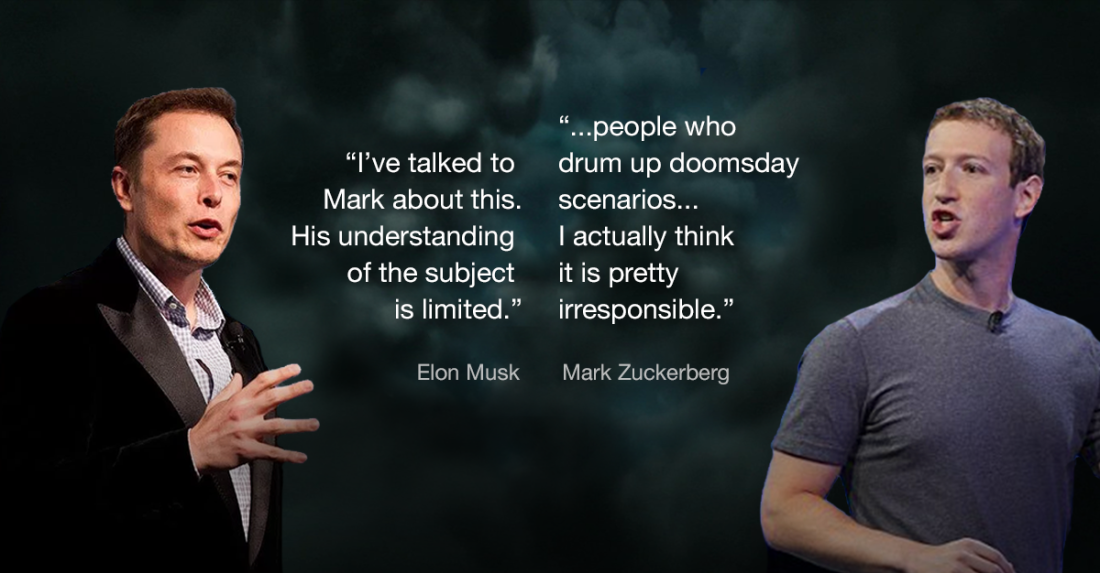Have you ever imagined what it would be like if your kettle knew when you were going to want a cup of tea? What about your phone knowing who you wanted to call without you typing in a number?
It might sound silly, but artificially intelligent robots are becoming increasingly skilled at recognising and predicting patterns in human behaviour. From watching less than a month’s worth of television shows, robots developed at MIT managed to predict human actions with a 43% success rate. This may not seem like a big deal, but if an artificially intelligent robot can learn so much in weeks, we must consider how effective these robots could be with years of training. Google are similarly using their own software, YouTube, in order to train artificially intelligent robots in human behaviour. AI has the advantage of not only being able to analyse huge sets of data incredibly quickly, which give insights into human behaviour, but it can also learn from watching and picking up mannerisms and habits.
BEATING HUMANS AT THEIR OWN GAME
Robots are becoming increasingly accustomed to human behaviour, and are starting to be able to adapt their own behaviour in order to improve themselves. This has lead to AI being able to beat humans at strategy games, which are based around trying to predict how your opponent is going to act. First it was chess, then the ancient Chinese game Go. What was amazing in this case was that the robot that beat the world Go champion learned not from watching others play, but from playing millions of games against itself. Every time it came across a winning strategy, it could improve its algorithm for game play that was embedded in its own computer chip. Imagine a world where humans have lost control of robots – they can rewrite their own programming, making them entirely unpredictable, whilst their superior computing power makes humans predictable to them. Find out more about DeepMind here
Even in less formulaic games, such as poker, humans are now being overtaken by robots. Poker is a particularly important example because it not only requires the prediction of human behaviour, which is less straightforward than simply considering the possible outcomes on a chessboard. Poker, unlike other games where you can see the entire board, deals with imperfect information. AI must teach itself a game, given the rules, rather than being programmed to play the game in a specific way gaining advantage since its moves cannot be predicted.

CLOSER THAN WE THINK?
This may seem a long way away, but Ray Kurzweil, current chief of Engineering at Google and a very accurate predictor of advancements in technology, thinks that the capability of humans will be surpassed by AI by 2045. This point is called ‘singularity’ and is illustrated in an info-graphic created by futurism.com.

OVERTAKING HUMANS?
Facebook recently programmed two robots to barter goods, but specified no reward for the transactions taking place in English. As a result, the robots developed their own language that was easier for them to speak; they were still using English words but repeating words multiple times and using different syntax. The outcome was that no human programmer could understand the robots. This is another example of intelligent machines being able to alter their own programming, moving away from the control of the people that created them. When this was reported by media outlets, many made this story seem far more ominous than it was; Facebook reprogrammed the experiment because they were trying to improve human to AI interaction, whereas it was reported as a Terminator-like scenario, with these robots possibly taking over their human programmers.


The idea of superhuman robots being able to rewrite their programming and rise against the human race is a scary one that is often perpetuated in science fiction films such as Blade Runner, Terminator and i, robot. Truly intelligent machines are able to learn and adapt from their environment, even going so far as to rewrite their own programming. There is a safety in the knowledge that robots are predictable to us – that we can turn them off, or change their programming, should they try to act in a way that we don’t approve of. The idea that the tables could turn, with omniscient robots knowing how we will act even before we do, is rightly terrifying. However, this is a rather fatalistic and view of the possibilities of AI. There are many possibilities of enhancement, rather than detriment.
A HELPING HAND?

AI can predict whether bills will pass through congress with a high degree of accuracy. This can prevent money from being wasted, as well as help politicians to ensure that the content they focus on is an effective use of time. MogIA, an AI system developed in India, also correctly predicted the result of major US primaries and elections since its creation in 2004. However, it can also be used to send out targeted adverts and misinformation to communities in order to sway their vote. The 2016 US election, the Brexit vote and the 2017 UK General election were all heavily influenced by ‘bots’. We have to decide at what point this undermines democracy, or whether incorporating AI into every campaign merely makes them all more effective. Is there a point at which robots accessing our personal information crosses a line?
On the more medical side, AI has been shown to be able to predict with 80-90% confidence whether a patient is likely to attempt suicide within the next two years, and with 92% confidence within a week. This prediction is made through analysing the age, gender, location, medications and prior diagnoses of the patient and comparing it to the ever-growing database that the AI has access to. This data could be incredibly useful in terms of maximising the resources of already over strained health provision. There is also the potential for AI to begin ‘playing God’ however, if it were to start deciding when this information should be acted upon. It is all well and good to have a helping hand from AI, but what if their agenda is not aligned with ours? Could they use their predictions against us?
There is massive potential for the use of robots within healthcare, both in terms of decisions, such as whether a patient is likely to survive a surgery, and direct surgical application, removing human error. Complications in surgery are the third most prominent cause of death in the US, and it is possible that increased use of AI could prevent this. Robots do not have a moral compass, they would deal with the pure statistics much more successfully than any person. After all, what compassionate doctor wouldn’t want to help a person in need?
AND WHAT NOW?
Ultimately, it may be irrelevant whether we believe AI to be a positive force for society, as we could reach a turning point at which we do not have control over the robots that we have created. It may be years until there is any kind of mainstream use of AI outside of research labs and controlled environments. Many heavyweights in the tech industry feel strongly that the danger of AI far outweigh any possible benefits. Elon Musk compared attempting to develop AI to “summoning a demon,” as we could quickly lose control of what we’ve created. As humans, we have a tendency to imagine the worst, and to be scared of what we can’t control. We are so used to being superior to the rest of the planet – wouldn’t it be ironic if we’ve created something that will one day rule over us? Or are we just overthinking the dangers of artificial intelligence?

The topic of AI is very controversial with emotive arguments on both sides. The consequences of such developments are currently unknown, and research into AI is often shrouded in secrecy. We don’t know the capabilities of current technology, and where it could take us in the future is pure speculation. There are respected voices on both sides: some say we should keep developing AI technologies, and others say that it has already gone too far. We must ask ourselves: how much are we willing to compromise for technological advancement? We use social media daily, knowing that they are quietly tracking every move we make, improving the algorithms that know which adverts we will respond to, or which pages we are more likely to interact with. Is it that such intrusions only bother us when they become impossible to ignore?
HAVE WE PIQUED YOUR INTEREST? READ MORE HERE:
AI can predict which bills will pass
Predicting the outcome of US Elections
Some of the ways that AI can help medicine
AI can predict responses to cancer treatment
Not mentioned in the blog, but some more interesting pieces about AI:
DeepMind – Focusing on the ethics of AI
DISCLAIMER
Any opinions expressed within this blog are the opinions of the author(s) and not those of University College London. This blog does not represent or endorse the accuracy or reliability of any information, content or advertisements contained on, distributed through, or linked, downloaded or accessed from any of the services contained on this website. You hereby acknowledge that any reliance upon any materials shall be at your own risk. This blog reserves the right, at its sole discretion and without any obligation, to make improvement to, or correct any error or omissions in any portion of the service or the materials.
Image Sources:
https://dribbble.com/shots/3429154-Artificial-intelligence-logo
https://www.google.co.uk/url?sa=i&rct=j&q=&esrc=s&source=images&cd=&ved=0ahUKEwiQlpypvYTYAhXHCsAKHVQQB5kQjxwIAw&url=http%3A%2F%2Fwww.zdnet.com%2Farticle%2Fgoogles-deepmind-ai-now-it-taps-into-dreams-to-learn-even-faster%2F&psig=AOvVaw2mJFf5bWb6UGd3zE9tsE7o&ust=1513168296380768
https://futurism.com/images/the-dawn-of-the-singularity/
https://theaviationist.com/2013/03/28/skynet/
http://irobot.wikia.com/wiki/VIKI
https://medium.com/@guerson/our-generation-will-live-the-full-transformation-of-the-digital-revolution-8b56ccb04337
https://www.google.co.uk/url?sa=i&rct=j&q=&esrc=s&source=images&cd=&ved=0ahUKEwiPzrLhvITYAhWIKcAKHfUxCZwQjxwIAw&url=https%3A%2F%2Fhackernoon.com%2Fa-blind-survey-on-who-techies-support-8bc79eac469d&psig=AOvVaw1s22W8vLXpjqokrRpAwmtQ&ust=1513168147903987